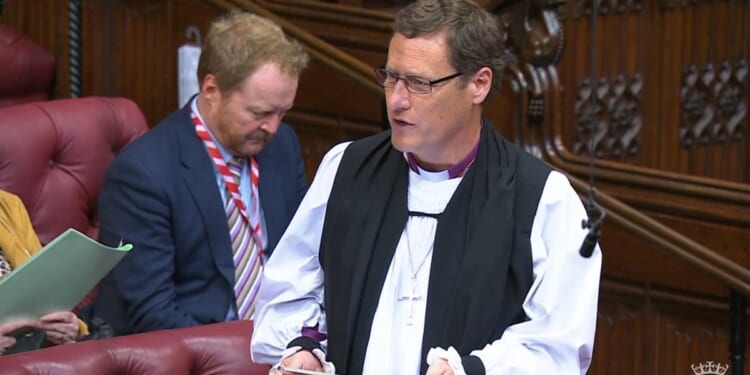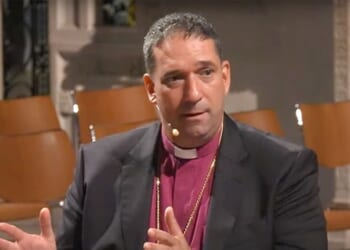A “REAL risk that many will . . . be pushed even deeper into poverty” was the concern expressed by the Bishop of Leicester, the Rt Revd Martyn Snow, about new legislation in the House of Lords last week.
Speaking in the debate on the Public Authorities (Fraud, Error and Recovery) Bill, Bishop Snow had sponsored an amendment on benefits which looked for “fairness in the face of the various reasons for an overpayment being made, including error by the department, and affordability, ensuring that those already in poverty are not pushed further into it”. He cited research that indicated how benefits payments were already inadequate and that the system could take people further into debt.
Bishop Snow also spoke about the problem of benefits overpayments and the plans of the Department for Work and Pensions’ (DWP), through this new legislation, to recover them. “According to a DWP Freedom of Information Act response in 2023-24, nearly 900,000 new overpayment debts were entered on DWP’s debt management system, nearly 80 per cent of which were recorded as caused by official error.”
Through the amendment, he wanted to “ensure that any repayment plans are fair, sustainable, and consistent with human dignity. This is for the good of the individuals, but also of the Government.” He did not accept that it would weaken the fight against fraud.
In response, the Minister of State, Baroness Sherlock, said that the DWP’s “aim is to secure affordable and sustainable repayment plans and ensure that safeguards are in place to protect vulnerable debtors”. She could not accept the amendment as tabled, but agreed that “deductions from benefit should not cause unintended hardship and should be fair.” She said: “There are robust processes in place to support the vulnerable and those struggling with debts.”
She told Bishop Snow that “the new recovery powers are not aimed at those on benefits. That is part of a broader debate . . . and I very much value his contribution to that.”
Lord Verdirame, who had brought the amendment (109), was content to see it fall and withdrew it. Other amendments were maintained or answered, and Lord Younger was especially concerned about government commitments to tackling “Sickfluencers”, who were, he said, “individuals who use . . . social-media platforms to publish detailed guides on how eligibility checks for welfare benefits can be manipulated or bypassed”.
The Minister, giving a detailed response, expressed confidence that the Government had “the right tools and networks in place beyond the legislation”, including the Fraud Act, Serious Crime Act, and Online Safety Act.
The Bill, introduced into the House of Commons in January, is part of the Government’s plan “to save a total of £8.6 billion over the next five years”. Its stated aim is “to safeguard public money by reducing public-sector fraud, error, and debt”. After its Third Reading in the Lords, it now returns to the Commons for a final stage, before Royal Assent.















